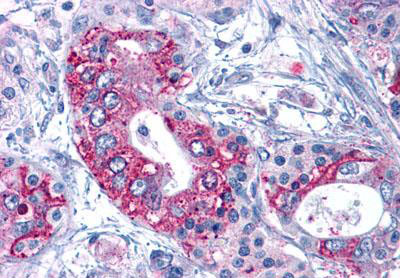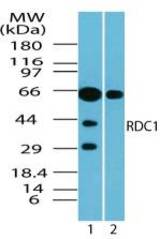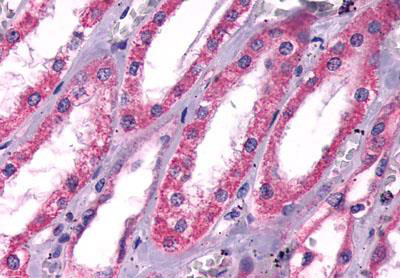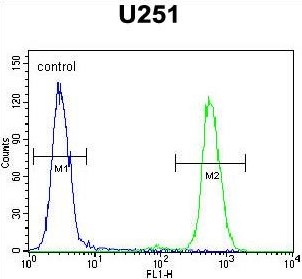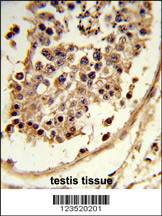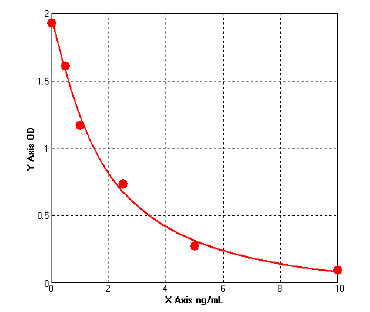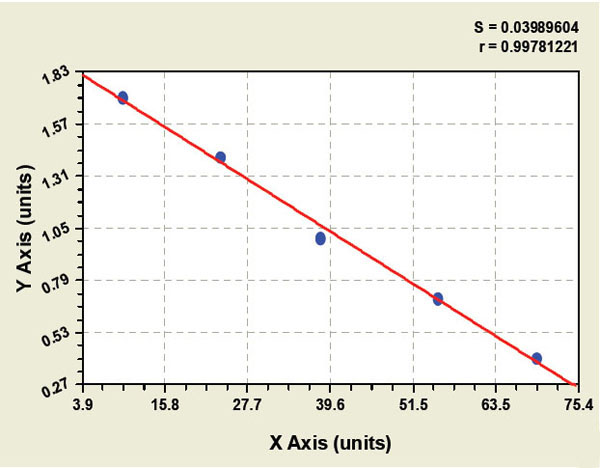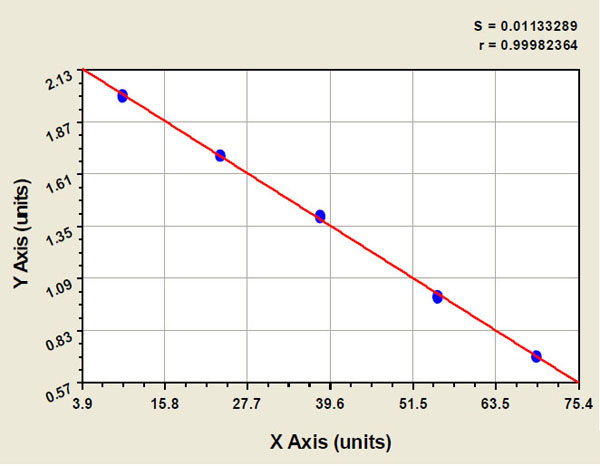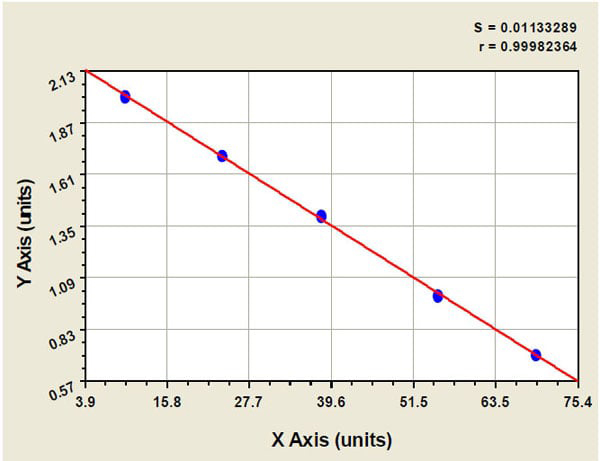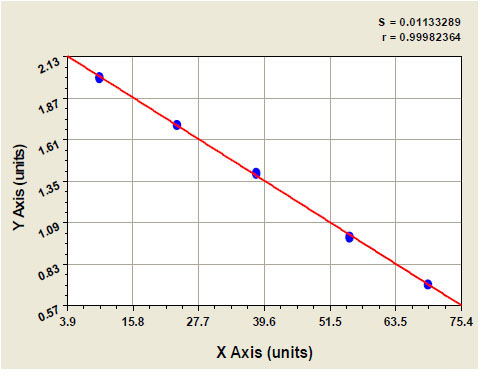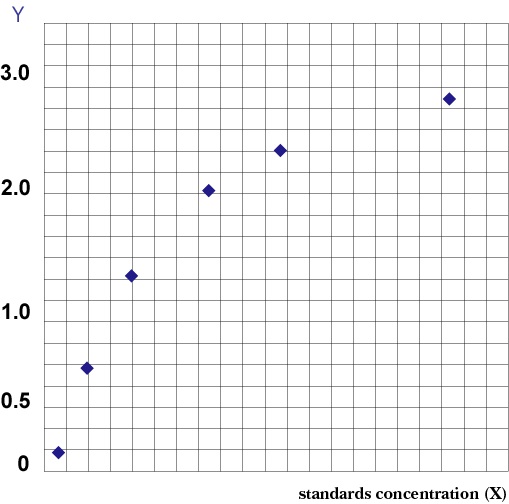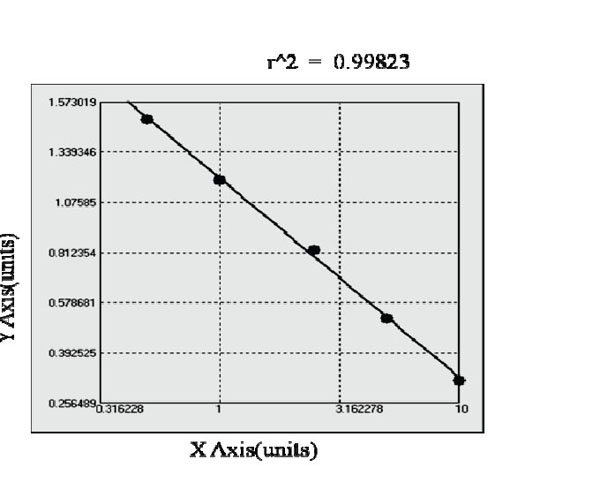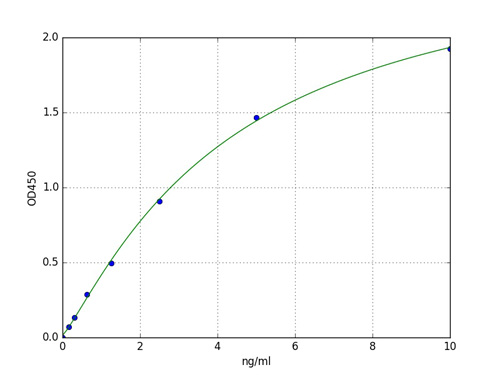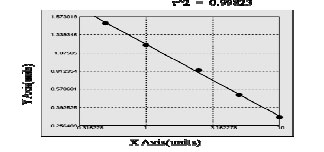Atypical chemokine receptor 3 Recombinant Protein | ACKR3 recombinant protein
Recombinant Human Atypical chemokine receptor 3
Gene Names
ACKR3; RDC1; CXCR7; RDC-1; CMKOR1; CXC-R7; CXCR-7; GPR159
Purity
Greater or equal to 85% purity as determined by SDS-PAGE.
Synonyms
Atypical chemokine receptor 3; N/A; Recombinant Human Atypical chemokine receptor 3; C-X-C chemokine receptor type 7; CXC-R7; CXCR-7; Chemokine orphan receptor 1; G-protein coupled receptor 159; G-protein coupled receptor RDC1 homolog; RDC-1; ACKR3 recombinant protein
Host
E Coli or Yeast or Baculovirus or Mammalian Cell
Purity/Purification
Greater or equal to 85% purity as determined by SDS-PAGE.
Form/Format
Lyophilized or liquid (Format to be determined during the manufacturing process)
Sequence Positions
1-40aa; Partial
Sequence
MDLHLFDYSEPGNFSDISWPCNSSDCIVVDTVMCPNMPNK
Species
Homo sapiens (Human)
Preparation and Storage
Store at -20 degree C, for extended storage, conserve at -20 degree C or -80 degree C.
Related Product Information for ACKR3 recombinant protein
Atypical chemokine receptor that controls chemokine levels and localization via high-affinity chemokine binding that is uncoupled from classic ligand-driven signal transduction cascades, resulting instead in chemokine sequestration, degradation, or transcytosis. Also known as interceptor (internalizing receptor) or chemokine-scavenging receptor or chemokine decoy receptor. Acts as a receptor for chemokines CXCL11 and CXCL12/SDF1. Chemokine binding does not activate G-protein-mediated signal transduction but instead induces beta-arrestin recruitment, leading to ligand internalization and activation of MAPK signaling pathway. Required for regulation of CXCR4 protein levels in migrating interneurons, thereby adapting their chemokine responsiveness. In glioma cells, transduces signals via MEK/ERK pathway, mediating resistance to apoptosis. Promotes cell growth and survival. Not involved in cell migration, adhesion or proliferation of normal hematopoietic progenitors but activated by CXCL11 in malignant hemapoietic cells, leading to phosphorylation of ERK1/2 (MAPK3/MAPK1) and enhanced cell adhesion and migration. Plays a regulatory role in CXCR4-mediated activation of cell surface integrins by CXCL12. Required for heart valve development. Acts as coreceptor with CXCR4 for a restricted number of HIV isolates.
Product Categories/Family for ACKR3 recombinant protein
References
"Cloning and expression of the human vasoactive intestinal peptide receptor." Sreedharan S.P., Robichon A., Peterson K.E., Goetzl E.J. Proc. Natl. Acad. Sci. U.S.A. 88:4986-4990(1991)
NCBI and Uniprot Product Information
NCBI GI #
NCBI GeneID
NCBI Accession #
NCBI GenBank Nucleotide #
Molecular Weight
20.5 kDa
NCBI Official Full Name
atypical chemokine receptor 3
NCBI Official Synonym Full Names
atypical chemokine receptor 3
NCBI Official Symbol
ACKR3
NCBI Official Synonym Symbols
RDC1; CXCR7; RDC-1; CMKOR1; CXC-R7; CXCR-7; GPR159
NCBI Protein Information
atypical chemokine receptor 3
UniProt Protein Name
Atypical chemokine receptor 3
UniProt Gene Name
ACKR3
UniProt Synonym Gene Names
CMKOR1; CXCR7; GPR159; RDC1; CXC-R7; CXCR-7; RDC-1
UniProt Entry Name
ACKR3_HUMAN
Customer Reviews
Loading reviews...
Share Your Experience
Similar Products
Product Notes
The ACKR3 ackr3 (Catalog #AAA18531) is a Recombinant Protein produced from E Coli or Yeast or Baculovirus or Mammalian Cell and is intended for research purposes only. The product is available for immediate purchase. The immunogen sequence is 1-40aa; Partial. The amino acid sequence is listed below: MDLHLFDYSE PGNFSDISWP CNSSDCIVVD TVMCPNMPNK . It is sometimes possible for the material contained within the vial of "Atypical chemokine receptor 3, Recombinant Protein" to become dispersed throughout the inside of the vial, particularly around the seal of said vial, during shipment and storage. We always suggest centrifuging these vials to consolidate all of the liquid away from the lid and to the bottom of the vial prior to opening. Please be advised that certain products may require dry ice for shipping and that, if this is the case, an additional dry ice fee may also be required.Precautions
All products in the AAA Biotech catalog are strictly for research-use only, and are absolutely not suitable for use in any sort of medical, therapeutic, prophylactic, in-vivo, or diagnostic capacity. By purchasing a product from AAA Biotech, you are explicitly certifying that said products will be properly tested and used in line with industry standard. AAA Biotech and its authorized distribution partners reserve the right to refuse to fulfill any order if we have any indication that a purchaser may be intending to use a product outside of our accepted criteria.Disclaimer
Though we do strive to guarantee the information represented in this datasheet, AAA Biotech cannot be held responsible for any oversights or imprecisions. AAA Biotech reserves the right to adjust any aspect of this datasheet at any time and without notice. It is the responsibility of the customer to inform AAA Biotech of any product performance issues observed or experienced within 30 days of receipt of said product. To see additional details on this or any of our other policies, please see our Terms & Conditions page.Item has been added to Shopping Cart
If you are ready to order, navigate to Shopping Cart and get ready to checkout.


